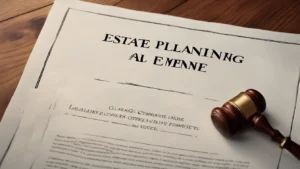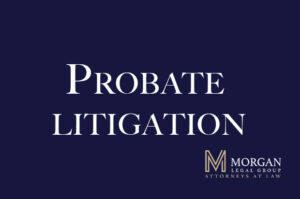Will Lawyers
A will is an estate planning document that allows a testator to designate the way in which their property will be distributed upon their death. Generally in most states, which Staten Island is not an exception, the Will must have the following to be valid.
- The Will must be written and documented.
- The Will must be signed by the testator.
- The testator must have testamentary capacity. This means the testator must be above 18 or is legally married. Also, the testator must know that are creating a Will; that the effect of the Will is to distribute their property upon their death; that they understand the properties they are distributing and knows who the intended beneficiaries.
Some Wills may however, not be written as in the cases of holographic Will, which just requires that the Will is witnessed and signed by the testator.
Types of Will
Simple Will
A simple will is the first thing that comes to your mind when you think about a last will and testament. It is a written will drafted for a simple estate with uncomplicated assets, specifying where such assets will go at the death of the testator (the creator of the will).
Pour-over Will
A pour-over will becomes greatly important when you create a trust and transfer some — but not all — of your assets into the trust. A pour-over will is created by the trust maker during his lifetime, to transfer the remaining assets which were not included in the trust, into the trust at his death. The assets thus transferred are subject to the terms of the trust. It may be used alongside a living trust to hold assets which could not be transferred into the living trust. The pour-over will only become effective after the death of the testator.
Holographic Will
A Holographic will is a handwritten will that was not witnessed by anybody at the time it was written. It just requires that the Will is witnessed and signed by the testator.
Nuncupative Will
A nuncupative will is also known as an oral will, that is, spoken and not written. Most states also do not accept an oral will but for it to be valid in Long Island, the oral will must have been made by a mariner at sea or a military personnel serving at a time of war. However, at least three persons must attest to have witnessed the testator uttering the words of the oral will.
What happens when there is no Will?
In the absence of a valid last will in Brooklyn, the intestacy laws states that all your estate would go to your spouse if you had no children. If you had only children, your estate would go to the children. If you’re survived by a spouse as well as children, then your spouse receives the half of your property, while the rest falls to your children. If you’re survived by neither spouse nor children, then your estate goes to your surviving next-of-kin as judged by the laws of Staten Island.
Consult a Will Lawyer Staten Island
Some situations other than creating a Will may require that you see a professional will lawyer, rather than handling them by yourself.
You may want to talk to a Will lawyer if:
- You have questions about how to draft and prepare your will or you require other options to share, protect your estate, properties and also beneficiaries of such.
- You expect to leave a very large amount of assets that may be subjected to excessive estate tax.
- You have complex family situations, probably one than one marriages, and children from different spouses.
- Rather than just drafting an ordinary will, you want to make more complex plans. For instance, placing your house in a trust to your spouse until he or she dies and then passing it to your children from a different spouse or marriage.
- You own a business and you have questions as to the rights of surviving owners or your ownership shares.
- Requiring guardianship or conservatorship for a beneficiaries.
- You need advice and help to make other estate plan documents like power of attorney, living trust and advance medical directives.
- You must make arrangement for a long term care of a beneficiary. For example setting up a trust for an incapacitated child.
- You have fears that your Will may be contested on grounds of inappropriate inclusions, fraud or claims that you were unduly influenced or that you were forced to sign the Will.
- You wish to disinherit a spouse or any other expected beneficiary of your property. It is usually not possible to do this, however, a Will lawyer in Staten Island can explain your spouse’s rights.
Contact a Will Lawyer Staten Island today to plan and write your Will.









